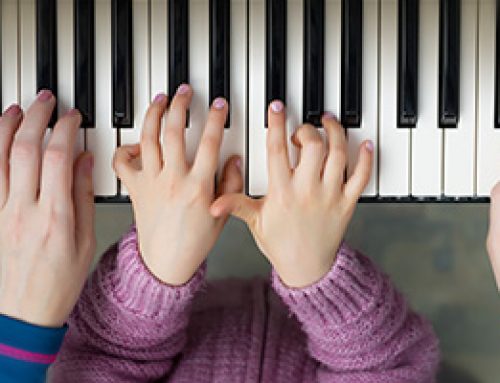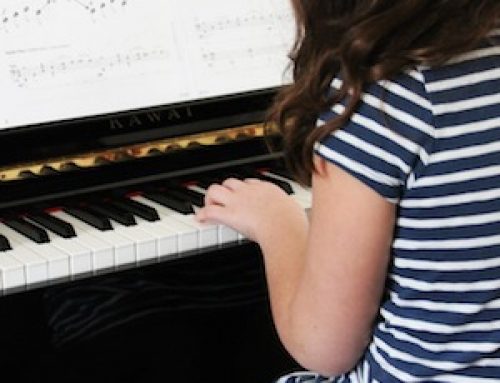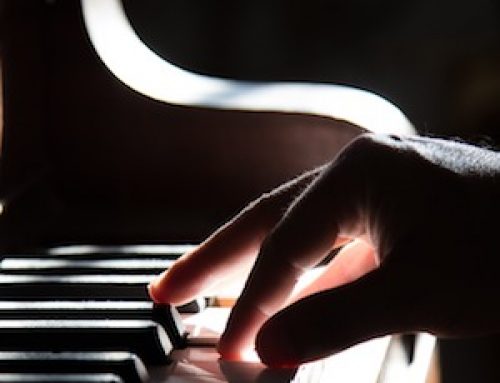Maintaining your piano can be a very valuable and worthwhile investment. It can be valuable to you years down the road because it can bring you great memories of your family enjoying music together. It can also be beneficial financially to maintain or increase the value of your piano. As a matter of fact, simply playing the piano regularly is better for it than years of disuse — it’s easier than you think!
Tuning
One of the easiest ways to maintain your piano is to have your piano tuned twice a year by a tuner/technician. The best times to tune it are mid-fall, after the heat has been on about a month, and again in early summer, after the air conditioning has been been on for a month. This is generally due to humidity effecting the wood in the piano. It is a good idea to have a tuner who is also a technician who can spot problems and hear things the average person could not. Have them give it a “check-up,” give you an estimate, and ask their opinion about alternatives and plans to maintain the piano over time. The technician is like a doctor — they have seen lots of “patients” (or pianos) and can tell you what kind of work is needed or anticipated. It is generally better to have the technician do the fixing than to do a quick fix yourself. A piano maintained well will not decrease in value; most likely it will increase its value, even to the point of profiting from its resale years down the road.
Piano Placement
The best place to keep your piano is against an inside wall. An outside wall will transfer some cold/hot outside air and humidity to your piano; these quick changes can hurt and stretch wood unnecessarily. If the outside wall is the only place for your piano, keep it at least one to two feet away from the wall to let inside air be a buffer. Never let the sun fall directly on the piano, or at least keep it filtered. Sunlight can hurt the finish, and can affect the soundboard or pinblock by causing cracks and loosening tuning pins.
Moderate Humidity
Pianos like moderate humidity, about 40% all year. Too little or too much humidity can not only damage wood by cracking, but can loosen glues and felts on the piano as well. If needed, use a humidifier or dehumidifier to keep the humidity as constant as possible.
Cleaning
Usually just a damp rag is necessary to keep dust off the piano. It is a good idea to have a rule that no food or drinks be placed on the piano at any time to avoid accidents. If you need a drink while playing, keep it on the floor next to you. Do not place plants or flowers on the piano in case of water leakage. Water spilled on the piano can hurt the outside finish and the inside soundboard and wood. The damp cloth will also work well on the keys as well. If you want to improve the entire look of the piano, the liquid cleaner Old English Furniture Polish is a good cleaner, but only if you intend to cover the entire exterior of the piano for continuous color/shading.
Regulation
Every 5-10 years pianos need regulating, depending on its use. Remember every key has many parts to it to function (at least 20 parts) and there are usually 88 keys on a piano. Multiply that, and that is difficult, tedious work. Regulation also means making sure each key has just the right settings – filing hammers, adjusting actions, turning tiny screws, leveling the keyboard, and much more. After regulating, the piano is usually re-tuned. This job can be anywhere between $1000 to $4000 for a comprehensive regulation.
Gentle on the Pedals
I have also found a common problem is being too harsh on the pedals. You can break them if you press too hard with your feet. Especially tell younger children this, since they sometimes put their full weight on them and stand on them. Basically, when you use the pedals your heel should always be on the ground.
Piano Books and The Web
An excellent resource for maintaining your piano is The Piano Book by Larry Fine. Read it or pick it up the next time you are at a book store – this is also a good investment. Don’t forget to look on the web for lots more information!
Piano Enjoyment Now & Later
Keep your piano maintained and you will have beautiful sounds to listen to now, as well as a good investment for the future.
Article © 2000 by Paul Nazzaro




